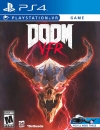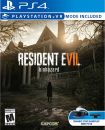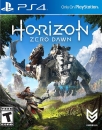Shtinamin_ said:
I do find you answers helpful. I've had an idea that I want to become a reality, and I figured that I should understand more about what I want to make. So yes you are spot on there as well. I figured who better to ask than people who love games :) Reading all of the posts have been really cool to learn about the history, changes, and what can be done. When you say nuance of game mechanics for elevating the RPG experience, what do you mean? |
I'm so glad I've helped. It's exciting communicating with someone who is making a game. I've had a dabble in Gamemaker, Unity 3D, blender, Maya, C# & GML over the years but I've never finished a full game never-mind published one. I wish you the best and hope your project does well.
By Nuance I mean a non-linear path of progression. Like tree branches going in separate directions. Whether it is more fleshed out mechanics, hybrid mechanics or completely new concepts.
Nuance is usually caused by subtle changes in a collective (large group of people, like industry scale) can be art movements, technological progression, culture/industry/political changes, etc.
Usually when new a category is established (like 3rd gen JPGs). Its usually has a lot of subconsciously hidden context that people take for granted at the time. It isn't until there's been a lot of experiments that blur the category until we realise there was more to the context of the initial category. Sub-categories within that initial category start to form (for example - 3rd-gen JRPGs turn into turn-based combat, fantasy-adventure, anime inspired, shopping-sim, Lore-based story with character-based story progression, numerical-based-RPG with free-roaming character movement outside of combat, etc).
Fantasy is another category we take for granted. We in the west imagine a medieval setting. Horror is another category we take for granted, we expect a supernatural element (Zombie's, Ghosts, etc). FPS games expect either a war theme (Call of Duty) or sci-fi theme (Halo). In a hundred years time we will look back and wonder why there were a lot of similarities that we didn't see before. 60s music feels similar to other 60s music but I bet in the 60s people saw each song as very different. Same with 70s and 80s music. Each decade is distinctive in itself when looking back in the 21st century.
I'm not trying to dictate what you do in your game cos Nuance isn't the only way to elevate a game genre, but it is handy for creating new subgenres within an existing genre, but you could always do the opposite; Hybrid genres/mechanics are more extreme changes which have the ability to create new entire genres (the Metroidvania genre for example). Also, entirely new concepts are even more extreme (but that one is even harder to pull off). I've been thinking about how to create fresh ideas recently and I thought of a good technique. I would imagine different types of simulations (like flight sim, sports sim, cooking sim, etc) then combining them. Or I would think of a new type of simulation that has never been done in a game before). Maybe combining a range of different simulations together, then I would flesh it out by combining a range of mechanics that flow. Splatoon combines paintballing and wall-painting nicely, these simulation ideas flow really well, then they would have added mechanics that also flow; paintballing sim = shooting mechanic. and also being able to travel fast through your teams paint type, including up walls (which works with the wall-painting simulation). Not that Splatoon is an RPG, it's just an clear example I can think of.
Sorry, I think I went a bit off-topic by the end. I just enjoy thinking about stuff until I flesh out the meaning in all it's context and I sometimes get lost inside my mind lol :P
Don't let me limit what you want to create. There will be many other ways to elevate a genre that I have not considered. These are just my personal input, but I hope I was inspirational :D
I have (or have/had in the household): ZX Spectrum, Commodore 64, Amiga, NES, Sega Master System, Super Nintendo, Sega Megadrive, Gameboy, Playstation, Nintendo 64, Windows 95, Gameboy Colour, Windows 98, Sega Dreamcast, Gameboy Advance, PS2, Gamecube, Xbox, Windows XP, Nintendo DS, Xbox 360, Wii, PS3, Windows Vista, iPhone, Windows 7, 3DS, Wii U, PS4, Windows 10, PSVR, Switch, PS5 & PSVR2. :D
and I Don't have: Magnovox Odyssey, Any Atari's, Any Macintosh computers, Sega Gamegear, Virtual Boy, Sega Saturn, N-gage, Xbox One, Xbox Series X/S, PSP, PSVita & Andoid Phone. Plus any non-mainstream consoles/platforms I haven't mentioned.






















































